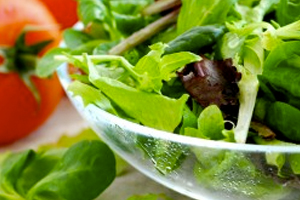
Have you thought about how your diet affects your fitness level? Your muscles need fuel to operate, just like your car does. And, just like your car, the better fuel you put into it, the better it runs. But what does this mean for your diet?
First, you need to think about when you eat. You need to provide your muscles with nutrients before and after your workouts, as well as when your muscles are in “recovery mode” between your workouts. This can have a huge impact on how productive your workouts are – both your energy levels, as well as the results of your workout.
Next, you need to think about the breakdown of what you are eating. Basically, your diet is comprised of three things – protein, carbohydrates, and fat. Since your muscles are predominately made of of protein, they will need protein for growth and recovery. Carbohydrates (which are sugars and starches) are what provides energy (i.e.. fuel) for your muscles during your workouts. You need carbohydrates before your workouts for fuel (your body converts starches and sugars into glycogen for fuel), plus – since your workouts deplete your body’s glycogen stores, you need carbohydrates after your workout to rebuild those stores. Finally, fats. Healthy fats are needed for between your meals – they keep you feeling fuller (so you don’t overeat), help reduce inflammation from your workouts, and are also necessary for heart health.
Eating healthy food sources (vs. processed foods) also helps provide your body with necessary vitamins and minerals. Your body uses vitamins and minerals during exercise, including energy production and muscle contraction. Lack of any of these nutrients can impact your ability to work out as you would like to. For example, your blood cells carry oxygen that is bound to an iron-rich protein, and if your dietary iron is low, you may become easily winded and fatigued during exercise. Vitamin C can help you absorb iron, and a deficiency of this vitamin can indirectly affect your iron levels. Electrolytes, such as sodium, help maintain fluid balance in your cells by pulling in water, and too little sodium in your diet can lead to muscle cramps as you exercise.
Finally, you need water – your body’s cells need water to replace fluids lost through sweating and heavy breathing during exercise, and can help your heart rate from climbing too high during your workouts. Being properly hydrated before, during, and after your workout allows better regulation of body temperature, helping you to complete your workouts while maximizing your workouts effectiveness.
A good rule of thumb when planning your diet is this. For Protein, shoot for about 2 grams of protein for each kilogram you weigh per day. For carbohydrates, try for 1 to 1.5 grams of carbohydrates per kilogram of body weight right after you exercise, and a total of 2.3 to 3.2 grams of carbohydrates per kilogram of body weight per day. Fats – look to include .5 grams of healthy dietary fats per pound of body weight per day.
And, strive to get that mix of protein, carbohydrates, and fats from healthy food sources, rather than supplements or processed food sources.

